Speeches Shim
Sector Reform and Utility Commercialization – From our Portfolio
USAID’s SRUC Program seeks to support utility commercialization by enhancing the financial viability and long-term sustainability of electricity systems, thereby facilitating modern utility development and establishing the necessary preconditions for long-term clean energy investments. SRUC works hand-in-hand with developing country power utilities to increase access, decrease commercial losses, improve human capital, and embrace private sector market models. The following projects illustrate how the SRUC Team is helping improve the sustainability of electricity systems around the world.
|
JAMAICA |
TANZANIA |
INDIA |
HAITI |
ChallengeJamaica's private power utility and sole provider of electricity on the island, Jamaica Public Service Co. Ltd (JPS), faces pervasive system losses averaging approximately 27 percent due to network deficiencies and power theft, primarily in urban areas. ImpactLed an international workshop on loss reduction, electricity theft, and regulatory incentives to bring leading practice approaches to Jamaica’s context. View here. Developed, procured, and installed a simple internal wiring structure for a low-income community in Kingston to access legal and safe electricity, and worked with the utility on means to improve its customer engagement strategy. Read more. Implemented an agency-based training – Empowered Entrepreneur Training Program (EETP) to certify newly electrified community members on business management and leadership. Read more. |
ChallengeThe Tanzanian Ministry of Energy & Minerals (MEM) estimates that only approximately 33 percent of households in the country have access to grid-provided electricity, partly due to high connectivity costs and issues related to internal wiring. ImpactRecommended a series of technology and financing alternatives to lower the cost of house wiring, and advised the national utility on how to encourage uptake of those wiring alternatives in key customer demographics. Read more. |
ChallengeIndia’s Ministry of Power and the state-owned distribution utility in Jharkhand sought to explore an innovative approach to achieve company losses reduction goals through the development of a Human Resource Incentives (HRI) Program to improve staff performance. ImpactConducted a global study of utilities’ various HRI approaches that have been used to encourage employees to combat non-technical electricity losses. Used findings from the study to design and launch a three-phase HRI Program with the state-owned distribution utility - Jharkhand Bijli Vitran Nigam Limited (JBVNL). Read more. |
ChallengeHaiti’s Caracol Industrial Park (CIP) has an on-site 10 MW power plant, the Caracol Power Utility (CPU), which provides 24-hour, reliable electricity to the CIP and its surrounding residents. Its leadership sought to develop a public-private partnership (PPP) structure to enhance the CPU’s long-term financial viability. ImpactWorked with the Government of Haiti to provide transaction advisory services to assess the feasibility for, advise on the structure of, and facilitate the solicitation of a private partner for the management of the CPU, to promote sustainable provision of electricity in the area. Read more. |
|
COTE D'IVOIRE |
MOZAMBIQUE |
INDONESIA |
PAPUA NEW GUINEA |
ChallengeThe state-owned Cote D’Ivoire Electricity Company has a long-term concession in place for electricity generation, transmission, and distribution. Currently, despite widespread distribution infrastructure, the company has a lower electricity penetration rate of 29 percent and aims to address it by facilitating on-grid connections for one million residential customers by 2020. ImpactProvided recommendations on financial structures and means to expand private sector participation in a national electrification program that subsidizes upfront grid connection costs for low-income households. Read more. |
ChallengeMozambique’s state-owned utility - Electricidade de Mocambique (EdM) – is undertaking a large-scale reform and commercialization effort, to modernize its business processes, improve operational efficiencies and customer satisfaction, and reduce high technical and commercial losses. ImpactDeveloped a Commercial Metering Strategy and Implementation Roadmap to support EdM’s commercial transformation and help it prioritize approaches to improve metering practices and implement new loss reduction initiatives. Read more. Designed a Network Customer Information System (NCIS) to integrate the EdM customer management system and geographical information system, and then to register its network assets and customers for the first time. Led the company through an energy balance exercise for more accurate calculations of feeder level losses. These new processes will be critical for the utility’s management of its ambitious electrification program. Read more. Designed and deployed EdM’s first nationwide Community Engagement Strategy to improve the utility’s relationship with the community and ultimately improve its business outcomes. Read more. |
ChallengeThe Government of Indonesia seeks to increase geothermal generation fivefold by 2025. To do so, the state-owned power utility, Perusahaan Listrik Negara (PLN), aims to develop more formal policies and procedures to more actively engage independent power producers (IPPs). ImpactSupported the development of guidelines, policies, and procedures for the renegotiation of geothermal tariffs and assisted PLN through its first live renegotiation with a geothermal developer. Read more. |
ChallengeThe state-owned Papua New Guinea (PNG) state-owned electric utility – Power Limited (PPL) has undertaken a transformative reform focused on financial sustainability, operational improvement, and improved transparency. This reform will be critical to facilitate the PNG Electrification Partnership’s target of having 70 percent of the country’s households connected by 2030. ImpactWork directly with PPL’s Retail Division to enhance the accuracy of the post-paid customer database, provide training and recommendations on meter management, billing, and collections, conduct a pilot program for the use of handheld meter readers, and develop a customer engagement strategy to improve PPL’s interactions with commercial and industrial customers. |


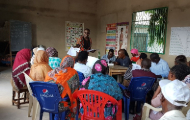

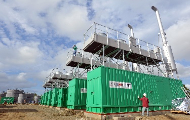
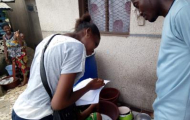
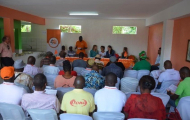
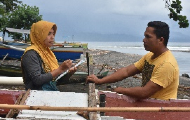
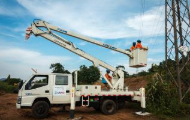
Comment
Make a general inquiry or suggest an improvement.